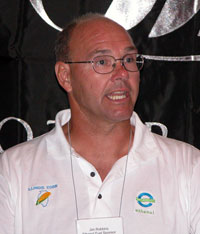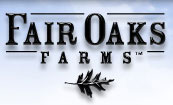 Accelerated Genetics released 12 new bulls for the Progressive Action Through Cooperative Efforts (PACE) program this week. Ayrshire, Jersey, and Holstein bulls will be randomly sampled by dairy producers participating in Accelerated Genetics’ PACE program.
Accelerated Genetics released 12 new bulls for the Progressive Action Through Cooperative Efforts (PACE) program this week. Ayrshire, Jersey, and Holstein bulls will be randomly sampled by dairy producers participating in Accelerated Genetics’ PACE program.
Ayrshire Sire:
014AY00026 Sunrise-Ridge Charlie is a uniquely bred young sire is an Eastern son, who is leading the LPI sire list in Canada. Charlie’s dam, a Griffey daughter, is scored Excellent-90 and has completed a record of 29,270 pounds of milk, 1086 pounds of fat and 911 pounds of protein. Griffy is the number one PTI active AI sire and the number one net merit active AI sire. Charlie was bred by Todd Frescura of Latrobe, Pennsylvania. Read More

 Vermont Governor Jim Douglas and legislative leaders have announced an $8.9 million emergency relief package for Vermont’s farmers. According to a
Vermont Governor Jim Douglas and legislative leaders have announced an $8.9 million emergency relief package for Vermont’s farmers. According to a  A new study by researchers from
A new study by researchers from 
 Here’s a new
Here’s a new  After
After 
 Dairy Markets Week in Review
Dairy Markets Week in Review The
The  The
The  An ethanol facility powered by renewable energy from dairy waste is planned for a large Indiana dairy farm.
An ethanol facility powered by renewable energy from dairy waste is planned for a large Indiana dairy farm.